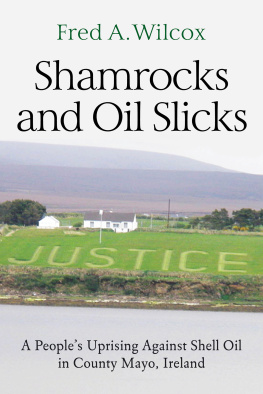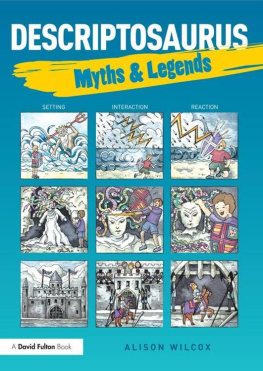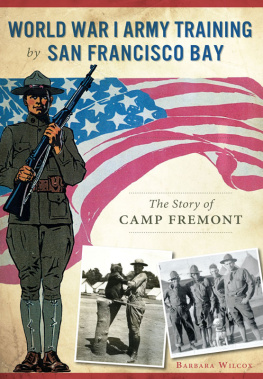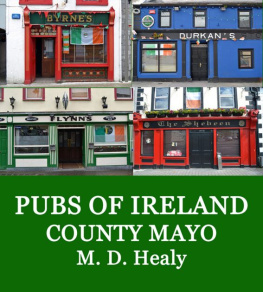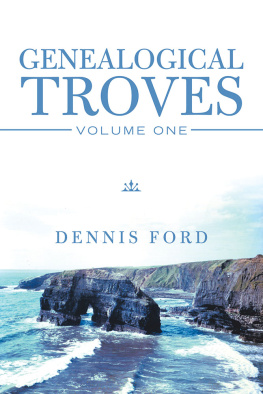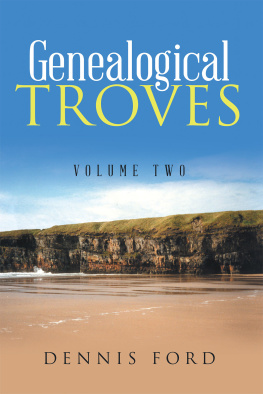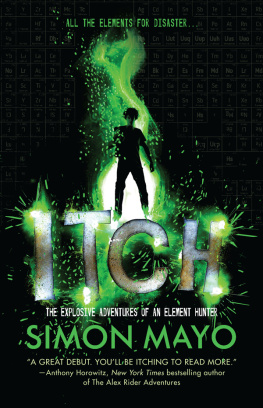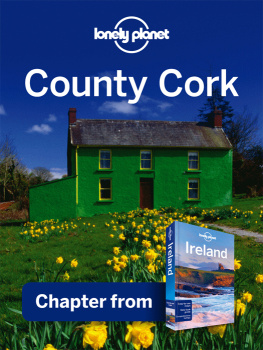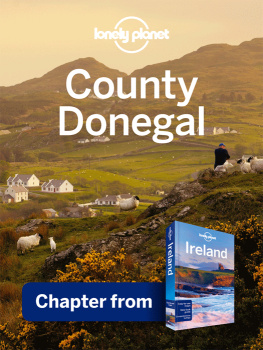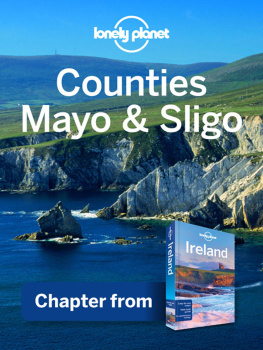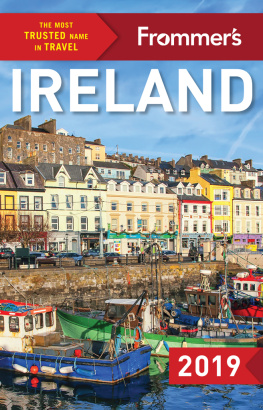
SHAMROCKS AND OIL SLICKS
Shamrocks and Oil Slicks
A Peoples Uprising Against Shell Oil in County Mayo, Ireland
by FRED A. WILCOX

MONTHLY REVIEW PRESS
New York
Copyright 2019 Fred A. Wilcox
All Rights Reserved
Library of Congress Cataloging-in-Publication Data
available from the publisher
ISBN 978-158367-846-6 pbk
ISBN 978-158367-847-3 cloth
Typeset in Minion Pro
MONTHLY REVIEW PRESS, NEW YORK
monthlyreview.org
5 4 3 2 1
Contents
This book is dedicated to Brendan Benjamin Wilcox, writer, photographer, artist, father, and altogether beautiful soul. He loved his friends and family, and left us to grieve his passing.
We declare the right of the people of Ireland to the ownership of Ireland, and to the unfettered control of the Irish destinies, to be sovereign and indefeasible.
PROCLAMATION OF POBLACHT NA HIREANN, PROVISIONAL GOVERNMENT OF THE IRISH REPUBLIC, 1916
Preface
IN 1970, THE WAR IN VIETNAM was raging. American cities were burning. Assassins had killed John F. Kennedy, his brother Bobby, the Reverend Dr. Martin Luther King Jr., civil rights workers, Black Panthers, and others. The Ohio National Guard opened fire on anti-war protestors at Kent State, killing four students. During an uprising at Attica state prison, police shot and killed more than forty inmates and guards.
Sick at heart, convinced the United States had gone insane, I flew to Ireland. In secondary school, wed read books by English writers, learned English history. Our teachers did not talk about imperialism or colonialization. We were not told about Irelands long struggle to become a free, democratic nation.
I wandered from town to town, meeting people in pubs, joining singalongs of rebel songs, standing alone at night beside the Atlantic Ocean, feeling as though Id come home. I rode a freight train into Belfast, arriving at the height of the Troubles, British troops racing through the streets in armored cars, smoldering neighborhoods, a drunken British soldier waving his rifle in my face.
In 1975 I returned to Ireland, living for a time on Inishbofin, island of the white cow, where I read Irish history, studied Irish literature, and learned about the Celts. Years later I would serve with a group of international observers in Northern Ireland during the marching season, a time when pro-British, anti-Catholic groups parade through towns and cities. One summer I acted as spokesperson for the observers. Caught in a Belfast riot, bricks flying overhead, cars exploding close by, the police firing hard rubber bullets, water cannons knocking over protestors, I experienced firsthand the rage of people whod been forced to live in substandard housing, to work at low-paying jobs, and to suffer for decades from endless sectarian violence.
My son, Brendan B. Wilcox, and I spent a lot of time in Ireland, raising pints of Guinness Stout, listening to music, searching for good food. I facilitated writers workshops on Inisheer, one of the Aran Islands off the coast of Galway, and in Tralee, County Kerry.
Brendan loved Ireland, the Irish people loved him. We talked often about moving there.
In 2014 I read about a situation in County Mayo, where local people were resisting Shell Oils plans to build a gas refinery and a dangerous pipeline. I did not think government officials would allow this project to go forward: Tens of millions of tourists visit Ireland each year, not to see a gas refinery or to worry about a pipeline exploding close to the hotel, hostel, or bed-and-breakfast in which they are staying.
It turns out that I had not learned very much about the country Id adopted as my own.
Writing Shamrocks and Oil Slicks, I encountered the soul sickness of greed and corruption, and also the meaning of great courage. Some of the people I met, and with whom I became friends, feel that Ireland needs revolution. I could not agree more.
FRED A. WILCOX
JULY 28, 2019
Introduction
VISITORS TO COUNTY MAYO, IRELAND, enjoy hiking on misty mountain trails, sailing on cold clear lakes, fishing in rivers teeming with salmon, and picnicking on pristine ocean beaches. Whales frolic in tranquil bays, rare birds nest in seaside cliffs, and sheep meander, as though deep in thought, across quiet roads.
In the sixteenth century, pirate queen Grace OMalley sailed from here to plunder the British fleet. St. Patrick is reputed to have taught Christianity in Mayo. Native Michal Davitt (18461906) cofounded the National Land League in Mayo, devoting his life to helping tenants break the power of landlords.
John Synge set his plays Riders to the Sea and Playboy of the Western World in the wilds of Mayo. John Ford filmed The Quiet Man in the village of Cong on the Mayo-Galway border. A halfcentury later, fans pose for photographs in costumes worn by the films stars, John Wayne, Maureen OHara, and Barry Fitzgerald.
In County Mayo, say people who live here, the land speaks to those who care to listen.
IN OCTOBER 1996 ENTERPRISE OIL Ireland discovers a 250 million-year-old gas deposit 83 kilometers (52 miles) off Mayos coast. A trillion to 850 billion cubic feet of gas lies in this, the Corrib gas field. Gas for cooking meals and heating homes, for stimulating Irelands economy, and, claims EOI, improving the lives of Irish citizens.
By 2002, having acquired primary interest in the Corrib gas deposits, Royal Dutch Shell Oil initiates a plan to build the first refinery on land in Ireland. Shells engineers, say company spokespersons, are the best in the world. The project will bring new jobs, improved roads, money for schools, and more to this impoverished area. County Mayos environment will never be harmed. Tourists will always visit this magical region.
Moreover, this multinational corporation is committed to being a good neighbor, to listening to the community, and to resolving differences through constructive conversation.
Clergy call Shells new project a godsend. There will be no more sorrowful goodbyes in Mayo when friends and relatives are forced to leave home in search of employment. Never again will families have to struggle to put food on the table and to keep a roof over their childrens heads. Happy days. Everyone will soon be rich.
Shell intends to construct a pipeline from where the gas comes ashore nine kilometers (approximately six miles) inland to the village of Ballinaboy. The pipe will be buried in unstable soil, run through farmers fields, and be dangerously close to private homes. Pressure inside the pipeline will be so high that in the event of an accident, families will be incinerated in seconds.
A MAN KNOCKS ON WILLIE CORDUFFS door. He is there to take measures and dig holes for the gas pipeline that will run beneath Willies fields. Not to worry, he says, the digger hell use wont disturb anything. Corduff and his family have spent a lifetime working to reclaim land from the bog. This is their home, their sense of place, where they belong. No one will ever change that.
Willie orders the man to leave. Accompanied by the police, he soon returns.
Willie knows that Shell Oil has constructed pipelines and refineries all over the world. The company doesnt need to explain its plans to begrudgers who think they know more about hightech projects than do professional engineers. After all, Shell is providing jobs. Other people in this backwater are feeling optimistic. Small-minded people like himself always resist progress. Complain all they want, but this pipeline and refinery
Next page
